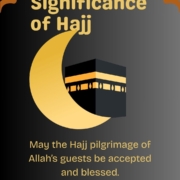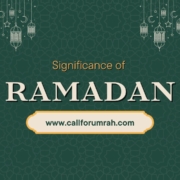What is the Most Important Hajj?
Hajj is one of the five pillars of Islam and holds profound spiritual, historical, and communal significance. Every year, millions of Muslims from across the globe gather in Makkah to fulfill this sacred obligation. But many wonder: What is the most important Hajj, and what makes it so vital to a believer’s life? To answer this, we must explore not only the rituals themselves but also the broader significance of Hajj in Islam.
The Spiritual Core of Hajj
Hajj is not merely a journey; it is a complete spiritual transformation. It is performed in the Islamic month of Dhul-Hijjah, specifically between the 8th and 12th days. Among all the rituals, the Day of Arafah is considered the most important day of Hajj. On this day, pilgrims gather at the plain of Arafat, standing in prayer and supplication from noon to sunset. The Prophet Muhammad (peace be upon him) said, “Hajj is Arafah,” highlighting its unmatched importance. Missing this crucial standing invalidates the pilgrimage.
The Day of Arafah symbolizes humility, forgiveness, and renewal. Pilgrims stand together, regardless of race, wealth, or status, seeking Allah’s mercy. It is here that sins are forgiven, and hearts are cleansed—marking the spiritual climax of Hajj.
The Broader Significance of Hajj
Beyond rituals, the significance of Hajj lies in its lessons of unity, equality, and devotion. Pilgrims wear simple white garments, known as ihram, signifying that all are equal before Allah. This powerful image reminds Muslims of life’s temporary nature and the eternal importance of faith.
Hajj also strengthens the bond of the global Muslim community, as millions of believers come together in worship. For many, it becomes a turning point in their lives, inspiring them to lead more pious and purposeful paths.
Comparing Hajj with the Significance of Ramadan
While Hajj is a once-in-a-lifetime obligation (if one has the means), Ramadan is an annual opportunity for spiritual growth. The significance of Ramadan lies in fasting, self-discipline, and heightened worship. Both Hajj and Ramadan cleanse the soul, but in different ways—Ramadan through consistent devotion and sacrifice over a month, and Hajj through an intense, transformative experience condensed into a few days.
Together, they serve as pillars of renewal—Ramadan preparing the heart and Hajj cementing a believer’s connection to Allah.
Conclusion
So, what is the most important Hajj? Without a doubt, the Day of Arafah stands as its core, the moment when pilgrims stand before Allah with pure devotion. Yet, the overall journey of Hajj embodies sacrifice, unity, and submission—values every Muslim strives to carry beyond Makkah.
Understanding the significance of Hajj helps us appreciate its role not just as a ritual, but as a life-changing experience. And when viewed alongside the significance of Ramadan, it becomes clear how these sacred acts of worship complement one another, guiding Muslims toward faith, discipline, and ultimate closeness to Allah.



